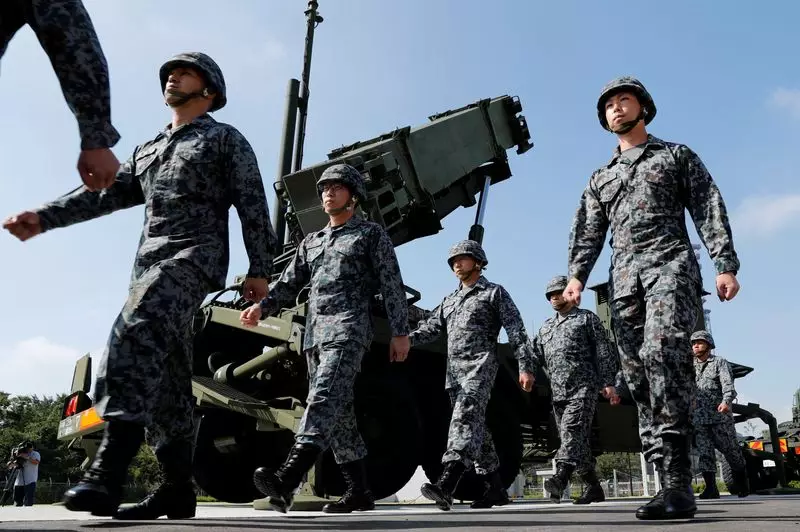The recent U.S. plan to utilize Japanese factories in order to ramp up the production of Patriot air defense missiles, essential in protecting against Russian attacks in Ukraine, has hit a roadblock. A critical component shortage, manufactured by Boeing, is causing delays in the expansion of production.
The seekers, which guide the missiles in the final stages of flight, are in short supply, hindering any plans for increased production. Sources have indicated that it could take several years before Mitsubishi Heavy Industries (MHI) is able to boost output due to this shortage. This bottleneck highlights the complexities of integrating global industrial support into intricate supply chains.
MHI currently produces around 30 PAC-3 missiles annually under license from Lockheed Martin. The U.S. aims to enhance global production to over 750 missiles per year, but the lack of seekers is impeding progress. Even Boeing’s efforts to expand its seeker factory in the U.S. are not expected to contribute significantly until 2027.
Expanding beyond the current 60 missile annual production in Japan would require significant investment in building more capacity. While Japan offers subsidies to defense companies for production expansion, these are limited to equipment for the country’s Self Defense Forces and not for exports. This leaves MHI or the U.S. responsible for funding a new PAC-3 factory, which could cost tens of millions of dollars.
The delays in Patriot missile production pose challenges for deepening industrial cooperation between the U.S. and Japan. The supply chain bottlenecks not only affect the Ukrainian demand for munitions but also complicate efforts to thwart Russian attacks. The partnership in the Patriot project is in jeopardy due to the component shortages and financial constraints.
The U.S. views the Indo-Pacific region as strategically crucial and emphasizes the necessity of maintaining readiness and deterrence capabilities. With ongoing conflicts in Ukraine and the Middle East, the significance of a robust missile defense system cannot be overstated. The delays in production highlight the vulnerability of the military-industrial complex in the face of geopolitical conflicts.
The delays in U.S. Patriot missile production underscore the critical importance of efficient supply chains and robust industrial cooperation. Resolving the component shortages and addressing the financial challenges are essential for meeting the growing demand for missile defense systems globally. Collaboration between the U.S. and its allies, including Japan, is vital for ensuring security and stability in the face of evolving threats.

